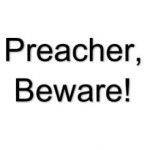2 Chron 7:14 – “If my people…”

2 Chronicles 7:14 — “…if my people, who belong to me, humble themselves, pray, seek to please me, and repudiate their sinful practices, then I will respond from heaven, forgive their sin, and heal their land.”
The issue to be explored here is whether this promise is directly applicable to any nation today.
American Christian leaders have often sought to apply it to their nation.
In this article, Tony Bennett points out that in 1981, Ronald Reagan had been sworn in to office as President with his hand on his mother’s Bible, open at this verse.
In 2016, Mike Pence, former Vice President of the USA, would frequently quote this verse in the run-up to Donald Trump’s first term as President. ‘Christian’ America was in danger from the Democrats, he would say, but it wasn’t too late. He would then quote this verse, to roars of approval.
In 2014, Franklin Graham quoted this verse and then immediately started talking about what was at state in the forthcoming elections.
This confusion is illustrated by the God Bless the USA Bible, also known as The Trump Bible, which includes, along with the text of the Bible, the US Constitution, the Declaration of Independence and the Pledge of Allegiance.
In immediate context, this verse is about the dedication of the temple by Solomon. In wider context, it addresses God’s covenant people, Israel. So to equate the USA (or any other nation) with ‘my people’, and its territory as ‘the land’, is mistaken. This is not a divine promise to heal America.
The promise, then, is to God’s covenant people. The correct application, therefore is to the church.
Bennett writes:
‘The four conditions that God sets out – humbling, praying, seeking and turning – are the main elements of biblical repentance. And sadly, there’s much about the church – both in the UK and in the USA – that calls for biblical repentance. One could name pride, idolatry, corrupt leadership, financial and sexual scandal, false teaching, counterfeit gospels, injustice and unbiblical styles of worship just to get the ball rolling.’
Fee & Stuart (How To Read The Bible For All Its Worth) caution against the error of redefining the terms of a text in order to suit the needs or wishes of the reader. In the present instance,
‘the context of this narrative clearly relates the promise to “this place” (the temple in Jerusalem) and “their land” (Israel, the land of Solomon and the Israelites). Understandably many modern Christians yearn for it to be true of their land wherever they live in the modern world—and so they tend to ignore the fact that God’s promise that he will “hear from heaven and will forgive their sin and will heal their land” was about the only earthly land God’s people could ever claim as “theirs,” the Old Testament land of Israel. In the new covenant, God’s people have no earthly country that is “their land”—despite the tendency of some American Christians to think otherwise about the world. The country all believers now most truly belong to is a heavenly one (Heb 11:16).’
Rather than invite criticism of the world, then, these words prompt the church to look in the mirror and seek God’s forgiveness and renewal.
They:
‘take for granted a people who are both called by God’s name and possessed of a land; a passage not therefore to be applied thoughtlessly in our NT times.’ (NBC)
John Piper writes:
‘One of the texts most commonly cited in the hope for imminent revival is 2 Chronicles 7:14, “[If] My people who are called by My name humble themselves and pray, and seek My face and turn from their wicked ways, then I will hear from heaven, will forgive their sin, and will heal their land.” Mistaken uses of this verse lessen our confidence in the predictions some make concerning a coming revival.
First, in the original context where God speaks these words to Solomon, the term “my people” refers to the people of Israel, and therefore the term “their land” refers to a land that is really “theirs” in the sense of God’s giving it to them as a covenant blessing, namely, the land of Israel. But when we apply this text to our contemporary situation, “my people” would refer to the Christian Church who cannot say, in whatever country that they reside, that this country is “their land.” The church has no land, the way Israel had a land. The Christian Church is a pilgrim people. We are aliens and exiles (1 Peter 2:11). Therefore, the proper application of 2 Chronicles 7:14 would, perhaps, be that, if the church will humble herself and pray and seek God’s face and turn from her wicked ways, God will incline to heal the church. But it goes beyond what this text assures if we say that any country where the Christian church humbles herself will experience a Great Awakening.’
(A Hunger for God, p115f)
Croteau and Yates (Urban Legends of the Old Testament) agree that this text should not be applied thoughtlessly to any nation (they are thinking especially of the American nation) today. It is not a prescription for national flourishing. The words are addressed to Solomon and are in response to Solomon’s prayers. ‘My people, who are called by my name’ are the Israelites. We must not bypass the new covenant that God has made in Christ, and and the new people that he has established in Christ – the church.
‘God desires for all his people to humble themselves (Jas 4:6; 1 Pet 3:8; 5:5 [citing Prov 3:34], 6). He also desires that we pray for our nation (1 Tim 2:1–4). But remember that the promise in 2 Chr 7:14 is “not a divine promise to Christians in the United States that God will fix our nation. We don’t have such a guarantee in Scripture.”’
Bargerhuff (The Most Misused Verses in the Bible) agrees: